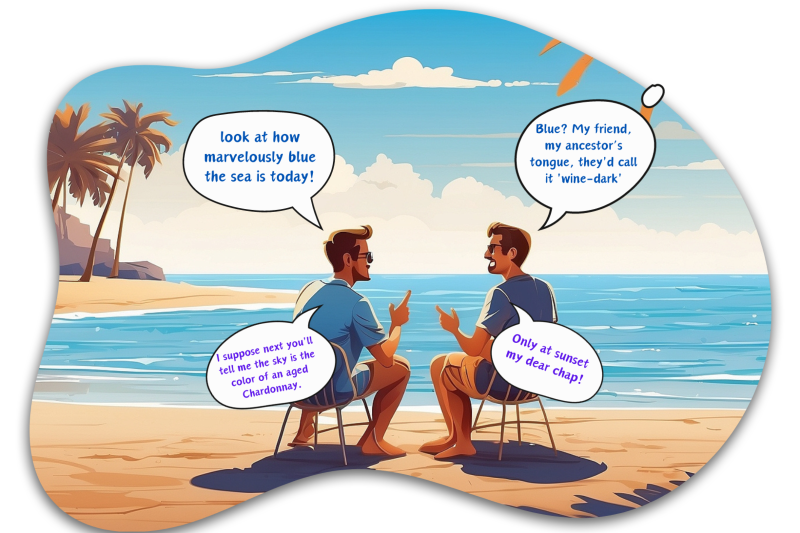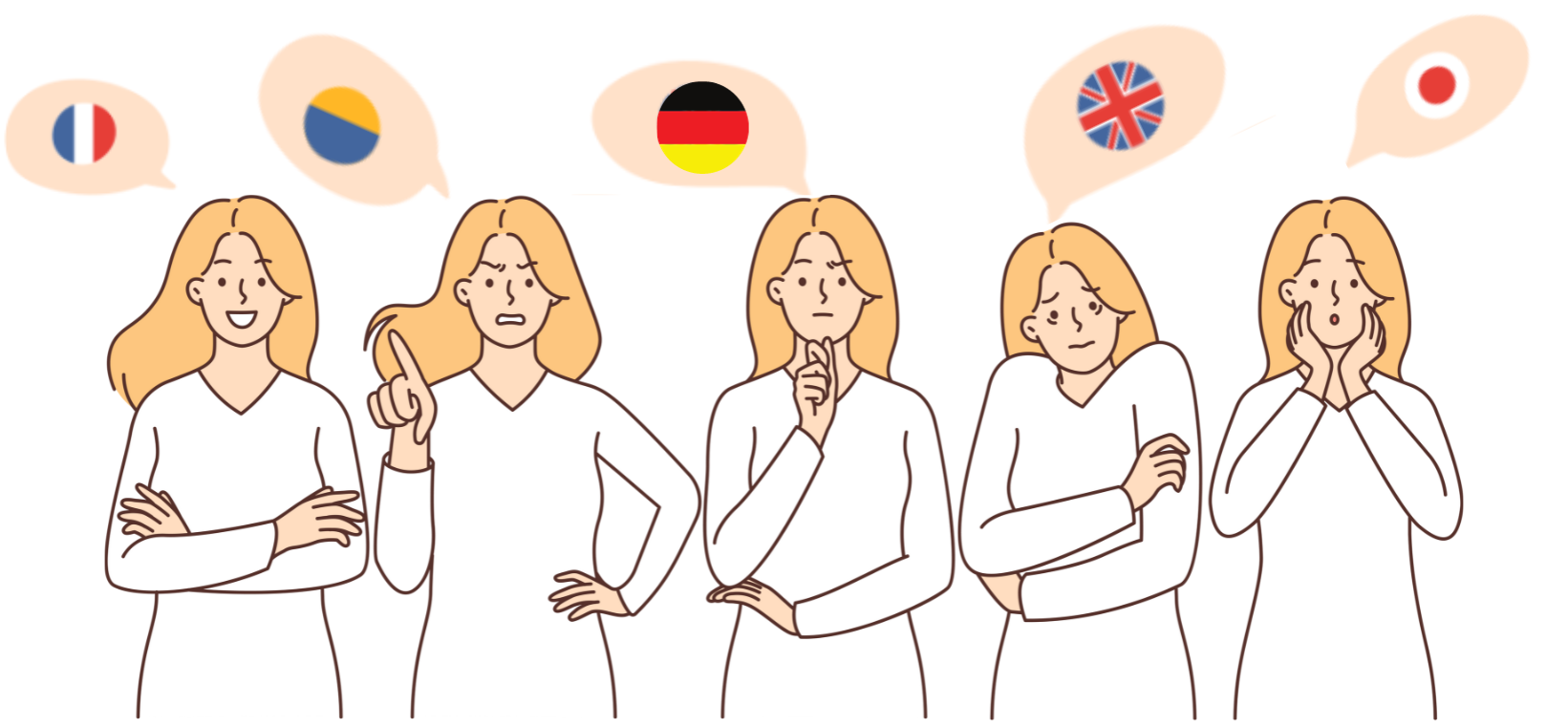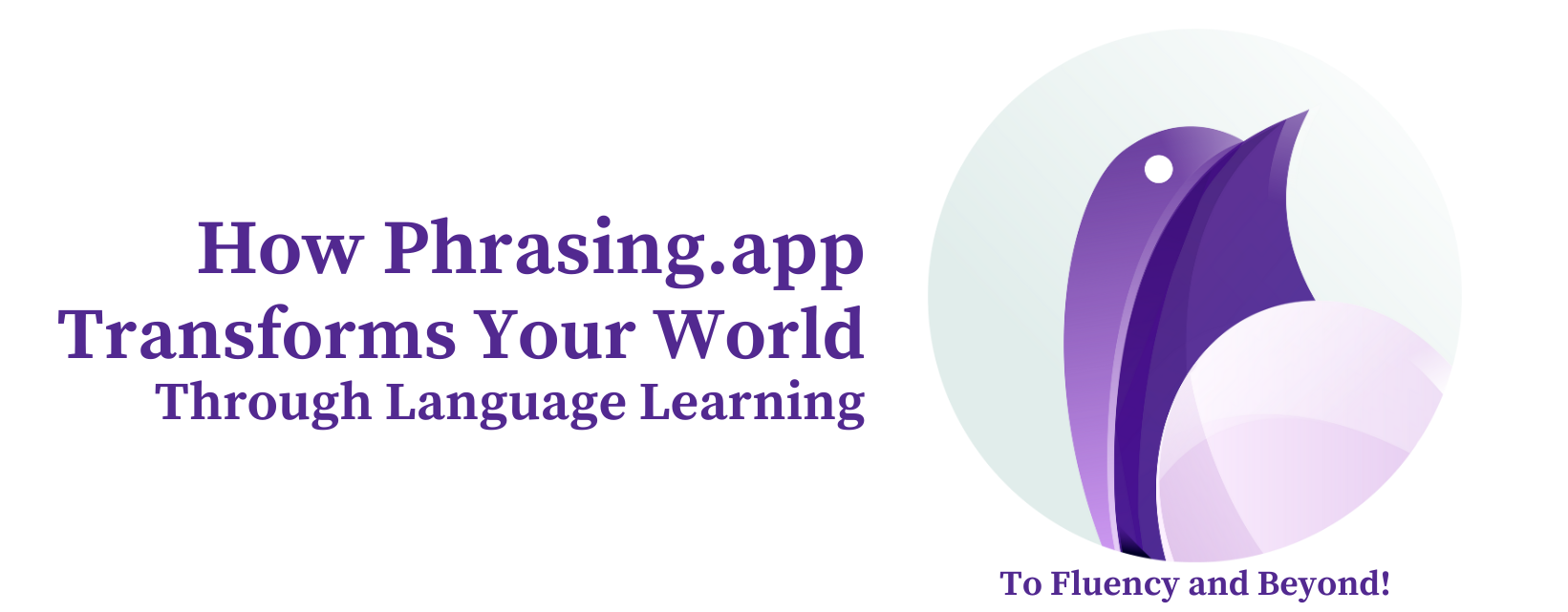A World Beyond Words: How Linguistic Nuances Shape Perception and Emotion
Every syllable carries the weight of a thousand emotions, and each phrase molds the contours of perception.

Have you ever wondered if the language you speak affects how you see the world? Well, it turns out, it does! The quirks and nuances of our languages don't just help us communicate; they actually shape our perception and emotions.
Perception: It's Not Just Black and White
Think about color, for instance. Consider the fascinating case of Homer's "The Odyssey", where the sea is described as "wine-dark," not blue as we might expect. This has led some researchers to ponder if the ancient Greeks perceived colors differently.
While it's a captivating idea, it's important to note that linguistic limitations don't necessarily restrict our ability to perceive colors. Rather, language can influence our attention and categorization of colors.
For example, while the Greeks may not have had a specific word for blue, it doesn't mean they couldn't see the color, but perhaps they categorized it differently.

Similarly, the way we perceive time can vary depending on our native tongue. English speakers often think of time as something horizontal – we look forward to the weekend, or we're leaving a bad experience behind us. However, for Mandarin speakers, time can also be vertical, with the past being "up" and the future "down."
Regarding snow, it's a common misconception that the Inuit have an extraordinarily large number of words for it. While they do have various terms for different types of snow, this isn't vastly different from the range found in other languages.
The key takeaway here is that language reflects the needs and experiences of its speakers. Inuit terms for snow are an example of how language can be closely tied to a culture's interaction with its environment, though it doesn't necessarily provide a radically different perception of the world.
Through interactive exercises, Phrasing.app helps you delve into these nuances of language. While exploring concepts like color and time, you'll discover how different languages frame these universal experiences. This isn't about seeing the world in a new color, but about broadening your linguistic and cultural horizons to appreciate and describe the kaleidoscope of life in novel ways.
Feelings: Lost in Translation?
Now, onto the emotional side of things. Ever noticed how some words just hit differently in another language? There's a reason for that.

Learning a language is not just about memorizing words and rules, but also about absorbing the cultural and emotional contexts that come with it.
For bilingual or multilingual individuals, this can mean having a mixed emotional palette. Maybe you find that swearing in a foreign language doesn't carry the same weight as it does in your mother tongue. Or that saying "I love you" feels different somehow when not said in your native language.
Research supports this concept too. It shows that people can react more emotionally to expressions in their primary language. After all, these are the words they've laughed, cried, and lived with.
What Does This Mean For Us?
Understanding how language influences perception and emotion opens up a whole new appreciation for the beauty and complexity of communication. It emphasizes the importance of cultural diversity and the need for empathy when bridging linguistic gaps.
So the next time you're learning a new language or chatting with someone from a different linguistic background, remember, you're not just exchanging words. You're sharing entire worlds of experience.

Research suggests that language doesn't just help us communicate—it actually shapes how we see the world.
What sets Phrasing.app apart is its commitment to context. It's designed to immerse you in the culture behind the words. This is key because when you understand the why behind the phrases, you truly begin to think in the language. And as we know, this influences how you perceive everything—from the color of the sky to the intensity of your feelings.
Are you ready to shift your perspective and discover the world anew? Phrasing.app isn't just a stepping stone—it's your gateway. Your journey through language is poised to transform the way you engage with the world, revealing the richness of human experience, one phrase at a time.
